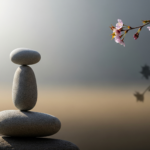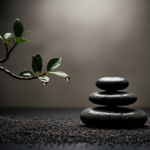I didn’t realize how exhausted I was until everything stopped. First came burnout, the quiet unraveling so many physicians know too well. Then grief followed. I lost my mother unexpectedly to an aggressive cancer and, three years later, my father after years of caregiving through advanced Parkinson’s disease. These losses shattered not only my heart but the way I viewed my life and work. For years, I practiced medicine within a system growing colder, more bureaucratic, and detached from its soul. At the turn of the 21st century, health care increasingly prioritized efficiency over empathy, productivity over presence. Patients and providers alike lost something essential: autonomy, voice, and connection. Marginalized patients were overlooked, a problem worsened by the pandemic, while my colleagues and I silently sank beneath the emotional weight. Holding families through difficult diagnoses became routine. This was no longer mere burnout; it was moral injury. It was collective grief.
Yet, somewhere within me, a memory of another way remained. My father, my compass in life, modeled rest from my childhood. Each evening after work, he took “unwinding time,” 15 minutes of silence lying flat, shoes off, free from interruption. I didn’t grasp its meaning then, but now I see it was a sacred act of transition, self-awareness, and reverence. He taught me that rest is a holy practice, not something earned. As Lisa Renee Hall, artist and social activist, says, “Rest is not a reward, it is part of the work.”
Neither of my parents were physicians, but both were artists of life. That is what united them, despite having grown up on two separate continents. My mother was an artist and fashion designer; she could feel a fabric’s texture and instantly envision the dress it would become. My father was a writer and poet at heart, able to recite stanzas he crafted anytime during the day. Their creativity shaped my early world, but as I entered medicine, I leaned heavily on logic, analysis, and efficiency. I quietly longed for more color, feeling, and intuition. I missed metaphor, the language of my creative self. I ached to return to my right brain, not just for balance, but to feel whole again.
That return began with Yoga Nidra, a guided meditation leading to deep physical relaxation while keeping the mind awake. In this restful state between waking and sleep, the brain produces delta waves associated with restorative sleep. Studies show it reduces stress, promotes healing, and calms the nervous system. Through the Daring to Rest program, taught by Karen Brody, I became a certified facilitator and embraced rest not as passive, but as a portal. Yoga Nidra gave me permission to lie down and listen to wake up. In the ensuing stillness, creativity, insight, grief, and beauty began to bloom.
Rest became a way to honor my nervous system, and, more deeply, to honor my parents. When I rest, dream, and create, I feel their presence: their voices, artistry, and spirit. Rest reconnects me with my roots. As Dr. Rubin Naiman states, “Excessive activation needs to be properly balanced by deep rest.” In medicine, this balance has been missing for far too long, but it can be restored.
In other high-stakes professions, rest is not a luxury; it is a safeguard. Aviation mandates strict rest regulations for pilots because fatigue is a safety risk with potentially fatal consequences. Elite athletes balance intense training with purposeful recovery, understanding that rest prevents injury and maintains peak performance. Both fields recognize that rest is an essential part of the work, not an optional reward.
So why, in medicine, do we continue to deny ourselves rest, the very thing that fosters clarity, compassion, and competence? Why is exhaustion still treated as a badge of honor when it erodes presence, performance, and humanity?
Tricia Hersey, author of Rest Is Resistance: A Manifesto, challenges us to view rest not as a privilege but a right. She exposes societal forces, grind culture, capitalism, systemic oppression, that deny rest to many and argues that rest is radical resistance in such a world. Medicine, with its relentless pace, urgently needs this radical reimagining.
Alongside Yoga Nidra, narrative medicine became another thread of healing in my life. Both rest and story invite us to slow down, listen deeply, and reclaim our humanity. Narrative medicine reminded me that medicine is not just science; it is story, metaphor, and mystery. It allowed me to reimagine the clinic not just as a site of diagnosis, but as a space for meaning making. What if rest and narrative became routine tools in clinical teams, rounds, and huddles? What if stillness and storytelling were viewed as lifelines rather than luxuries?
One tangible outcome of this healing was My Mother’s Garden, a short film based on a poem I wrote after my mother’s death. My poem was selected for Breathe: Honoring the Voices of Healthcare, a powerful storytelling film platform that illuminates the often-hidden emotional lives of health care workers. On set, I brought pieces of my mother’s craft: her fabrics, her essence, her love of beauty. This creative process became a ritual of grief, remembrance, and reimagining what medicine can hold.
As Rachel Naomi Remen writes, “Everyone is a story.” Yoga Nidra helped me return to mine. It allowed me to feel parts of myself long suppressed in survival mode. It reconnected me to why I entered medicine, not to fix, but to witness.
I now walk the path of the rested healer, not because I have transcended the weight of this work, but because I have learned how to soften beneath it. To honor grief’s cycles, the power of story, and the necessity of rest. I want to share this path with patients, caregivers, and colleagues because I believe this is the medicine we have been waiting for.
Becoming a rested healer begins on three interconnected levels:
- Tier 1: Personal, rest: Start by adopting a personal rest practice. Before we can model rest for others, we must feel it in our own bodies.
- Tier 2: Relational, connect: Find others who value rest. Build communities, create space together, or train as rest facilitators. Rest is not solitary; it thrives in community.
- Tier 3: Cultural, engage: Let us shift the culture of medicine and caregiving from grind to grace. Engage leadership, challenge systems, and advocate for rest as essential, not optional.
Building a “Rest Ethic,” a term coined by Ximena Vengoechea, is about embracing the radical permission to slow down, reclaim balance, and cultivate sustainability in our lives and work. This is how we come home to ourselves. This is how we dare to rest in medicine.
Roxanne Almas is a developmental behavioral pediatrician and an associate professor of pediatrics at UCSF Benioff Children’s Hospital, specializing in children with complex neurodevelopmental conditions. She also serves as the wellness coordinator for the Division of Developmental Medicine at UCSF. Fluent in French and proficient in Spanish, she centers whole-person care that honors trauma, equity, and family partnership. Certified as a narrative medicine and yoga nidra facilitator, she explores how storytelling and rest support resilience and healing in health care. She leads UCSF’s Narrative Medicine Circles, conducts workshops nationally, and was selected as a writer for the Breathe: Honoring the Voices of Healthcare film series. Her writing appears in Bioethics Today and KevinMD. Outside of work, she enjoys writing, gardening, and finding the sacred in the everyday.





















![Stopping medication requires as much skill as starting it [PODCAST]](https://kevinmd.com/wp-content/uploads/The-Podcast-by-KevinMD-WideScreen-3000-px-4-190x100.jpg)


![Weaponizing food allergies in entertainment endangers lives [PODCAST]](https://kevinmd.com/wp-content/uploads/The-Podcast-by-KevinMD-WideScreen-3000-px-3-190x100.jpg)

